Refine search
Actions for selected content:
23990 results in Ancient history
Acknowledgments
-
- Book:
- Social Networks and Regional Identity in Bronze Age Italy
- Published online:
- 05 August 2014
- Print publication:
- 11 August 2014, pp xiii-xiv
-
- Chapter
- Export citation
Index
-
- Book:
- Social Networks and Regional Identity in Bronze Age Italy
- Published online:
- 05 August 2014
- Print publication:
- 11 August 2014, pp 319-325
-
- Chapter
- Export citation
Chapter Six - West-Central Italy: Networks and neighbors
-
- Book:
- Social Networks and Regional Identity in Bronze Age Italy
- Published online:
- 05 August 2014
- Print publication:
- 11 August 2014, pp 150-181
-
- Chapter
- Export citation
Social Networks and Regional Identity in Bronze Age Italy - Title page
-
-
- Book:
- Social Networks and Regional Identity in Bronze Age Italy
- Published online:
- 05 August 2014
- Print publication:
- 11 August 2014, pp iii-iii
-
- Chapter
- Export citation
Chapter Two - Imports and Specialized Products in Italy in the Recent and Final Bronze Ages
-
- Book:
- Social Networks and Regional Identity in Bronze Age Italy
- Published online:
- 05 August 2014
- Print publication:
- 11 August 2014, pp 34-65
-
- Chapter
-
- You have access
- HTML
- Export citation
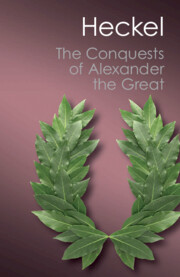
The Conquests of Alexander the Great
-
- Published online:
- 05 August 2014
- Print publication:
- 29 March 2012
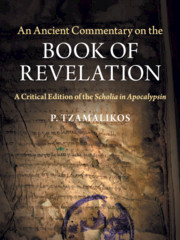
An Ancient Commentary on the Book of Revelation
- A Critical Edition of the Scholia in Apocalypsin
-
- Published online:
- 05 August 2014
- Print publication:
- 21 November 2013
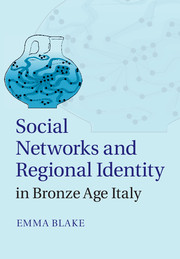
Social Networks and Regional Identity in Bronze Age Italy
-
- Published online:
- 05 August 2014
- Print publication:
- 11 August 2014
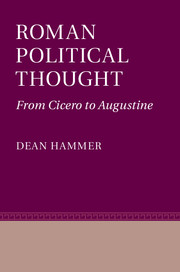
Roman Political Thought
- From Cicero to Augustine
-
- Published online:
- 05 August 2014
- Print publication:
- 28 July 2014
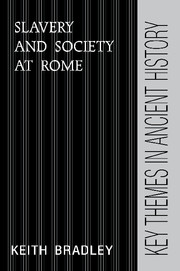
Slavery and Society at Rome
-
- Published online:
- 05 August 2014
- Print publication:
- 13 October 1994
9 - Augustine: Political thought as confession
-
- Book:
- Roman Political Thought
- Published online:
- 05 August 2014
- Print publication:
- 28 July 2014, pp 382-430
-
- Chapter
- Export citation
Index
-
- Book:
- Roman Political Thought
- Published online:
- 05 August 2014
- Print publication:
- 28 July 2014, pp 547-555
-
- Chapter
- Export citation
4 - Virgil: Politics, violence, and memory
-
- Book:
- Roman Political Thought
- Published online:
- 05 August 2014
- Print publication:
- 28 July 2014, pp 180-228
-
- Chapter
- Export citation
Index Locorum
-
- Book:
- Roman Political Thought
- Published online:
- 05 August 2014
- Print publication:
- 28 July 2014, pp 505-546
-
- Chapter
- Export citation
Bibliography
-
- Book:
- Roman Political Thought
- Published online:
- 05 August 2014
- Print publication:
- 28 July 2014, pp 431-504
-
- Chapter
- Export citation
Roman Political Thought - Title page
-
-
- Book:
- Roman Political Thought
- Published online:
- 05 August 2014
- Print publication:
- 28 July 2014, pp iii-iii
-
- Chapter
- Export citation
Copyright page
-
- Book:
- Roman Political Thought
- Published online:
- 05 August 2014
- Print publication:
- 28 July 2014, pp iv-iv
-
- Chapter
- Export citation
Roman Political Thought - Half title page
-
- Book:
- Roman Political Thought
- Published online:
- 05 August 2014
- Print publication:
- 28 July 2014, pp i-ii
-
- Chapter
- Export citation
Introduction
-
- Book:
- Roman Political Thought
- Published online:
- 05 August 2014
- Print publication:
- 28 July 2014, pp 1-25
-
- Chapter
- Export citation
Abbreviations for classical texts
-
- Book:
- Roman Political Thought
- Published online:
- 05 August 2014
- Print publication:
- 28 July 2014, pp xi-xvi
-
- Chapter
- Export citation
